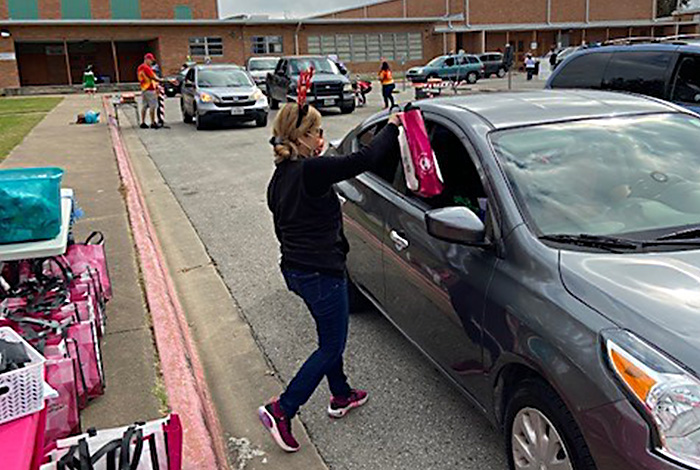Health Plans Making Holidays Merrier for Those in Need
12/23/2021

For most Americans, the holidays mean time with family and opportunities to celebrate with friends and colleagues. For ˛»ÁĽŃĐľżËů’s state-based health plans, they are a time to double down on commitments to ensure that the people in the communities we serve have warm clothes and enough food to eat so that more families can focus on what makes the holiday season meaningful.ĚýĚý
In truth, ˛»ÁĽŃĐľżËů health plans focus on the whole health of the people we serve year-round. That means not only taking into account symptoms and health diagnoses, but also social and economic factors, also known as – such as housing, food insecurity and safety, for example - that can play a big role in health outcomes.Ěý Across healthcare, there’s a recognition that if you’re having to worry about keeping a roof over your head or where your next meal will come from, health is secondary, so addressing an individual’s healthcare means simultaneously addressing health behaviors and social and environmental issues.
It has become part of the bread-and-butter work of ˛»ÁĽŃĐľżËů health plans, which invest locally in efforts to improve access to care, like having a reliable, affordable ride to a provider’s office or access to healthy food.
The focus on social determinants grew during the pandemic as millions were idled from their jobs because of COVID-19 lockdowns that were designed to slow the spread of the virus. ˛»ÁĽŃĐľżËů health plans donated $1.8 million to more than 200 organizations fighting hunger last year, and 65,000 gift cards to help people afford essential items. Meanwhile, ˛»ÁĽŃĐľżËů invested $18 million in telehealth solutions to make it easier for members across the country to access care when budgets were tighter than normal for many.
During the holidays this year, ˛»ÁĽŃĐľżËů health plans are building on that work, launching efforts and partnering with community organizations to tackle hunger and other basic needs. Just a few examples of this commitment from the last couple of weeks:
- NH Healthy Families distributed 50 Thanksgiving family meals to area residents in Coos County, N.H. The plan partnered with Coos County Family Health Services to provide the meals through their Green to Go initiative, which is a mobile pantry offering fresh fruits and vegetables, along with nutrition and diabetes prevention education, to low-income, low-accessibility communities in the Granite State.
- Texas’ Superior HealthPlan recently partnered with the Austin-based organization VELA to distribute gift cards and other items to more than 225 families of children who have disabilities, as part of the nonprofit’s .
- Fidelis Care in New York is for groceries, worth about $200,000, to more than 900 agencies, schools, and organizations that partner with Fidelis Care statewide. In turn, the coupons are being given to local residents with limited resources who are most in need.
- In Silver City, N.M., Western Sky Community Care worked with Hidalgo Medical Services on an initiative just before Thanksgiving to encourage area students 12 and up to get their COVID-19 vaccination. Participants received a new pair of shoes when they arrived for their second doses. Seventy-five young people were vaccinated as part of the event.
- Just before Thanksgiving, WellCare of North Carolina and Carolina Complete Health partnered with a number of organizations in a rural community about an hour outside of Charlotte for a community food drive and vaccination clinic, where 89 people received COVID-19 vaccines.
Every day, ˛»ÁĽŃĐľżËů health plans work to make sure people get the right care at the right time. This holiday season, we will continue working alongside organizations in our communities helping to ensure that people have enough to eat and kids have something under the Christmas tree.